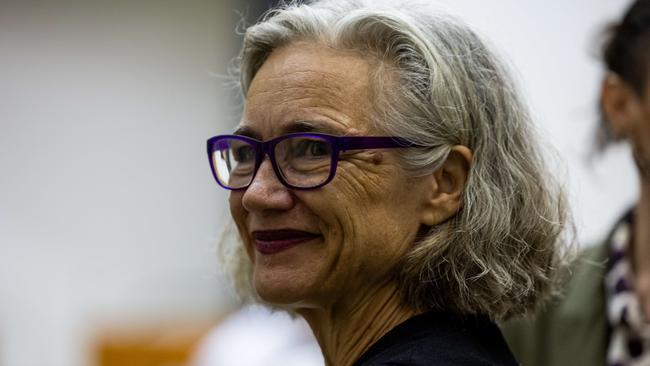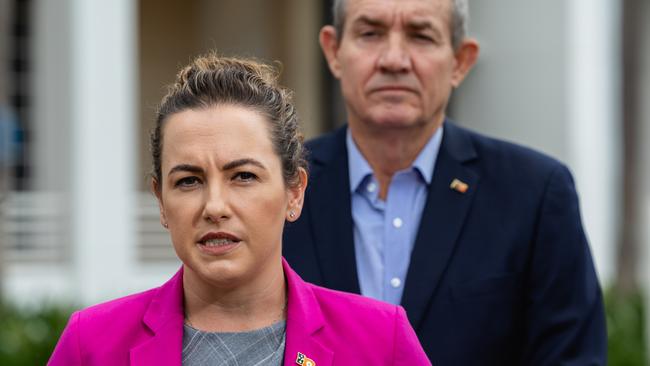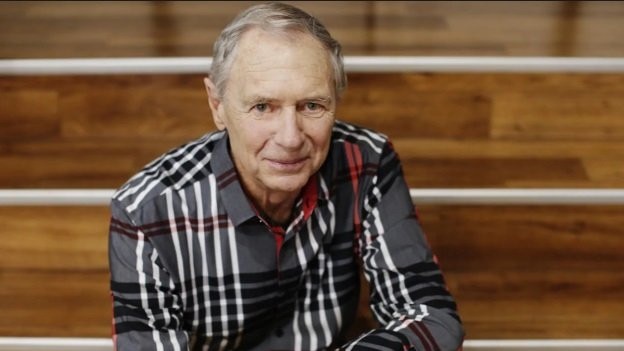Independent’s VAD motion stalled amid uncertain government support
A politician’s plan to force the government into action on voluntary assisted dying has stalled, as the Chief Minister continues to resist pressure to bring the NT in line with the rest of the country.

Politics
Don't miss out on the headlines from Politics. Followed categories will be added to My News.
A Northern Territory politician’s plan to force the government into action on voluntary assisted dying has stalled, as the Chief Minister continues to resist pressure to bring the NT in line with the rest of the country.
Independent member for Johnston Justine Davis last month gave notice she would call on the CLP to introduce voluntary assisted dying (VAD) laws; a motion originally expected to occur when parliament returns next week.
Ms Davis is now planning to delay the move until May, in hope of securing more support across the chamber before forcing the debate.

Chief Minister Lia Finocchiaro did not reply to a series of questions on the topic, including
whether she would personally support the VAD motion, or allow a conscience vote as promised before the election.
Instead, a government spokeswoman said “we cannot speculate on any decisions MLA’s may make on this important issue”.
Mrs Finocchiaro has previously stated VAD was “not a priority” of her government, despite an independent expert advisory panel finding strong public support for an NT scheme.
The Territory was the first place in the world to legalise euthanasia for a brief period three decades ago, and is now the only Australian jurisdiction without VAD legislation.
There is support to restore Territorian’s rights within the Country Liberal ranks: Joshua Burgoyne, Clinton Howe, Matthew Kerle and Laurie Zio so far the only members to have publicly affirmed their position in favour.
It remains unclear what, if any, direction Mrs Finocchiaro will give her team on the issue at the CLP’s party room meeting on Monday.

Marshall Perron, former Chief Minister and architect of the NT’s 1995 Rights of the Terminally Ill Act, said a conscience vote should encourage more politicians to speak out.
“They all have the right to speak about it publicly, campaign for it or against it, and introduce a private members bill – that’s the nature of a conscience vote,” Mr Perron said.
“A conscience vote turns the chamber into a complete parliament of independents, it’s democracy at its best.”
Mr Perron said a “sensible” option would be to revive the 1995 laws, with some amendments.
Resources for drafting Bills of such magnitude are currently unavailable to independents, and Ms Davis said she hoped it would not be left to the opposition and crossbench to show leadership on the issue.
“I have been talking to members across parliament with the aim of ensuring that when this motion comes to the floor, we will be able to see real and effective action on it,” she said.
“There is still some more work to do on this, so I will be delaying my motion to the next sitting of parliament in May.
“I am doing this because I want to make sure that we have the best chance of bringing back the right to die with dignity to the NT.”
Peak body Council on the Ageing NT, said the Territory had waited long enough.
“It is time to restore the rights of the terminally ill,” chief executive Sue Shearer said.
“If you are diagnosed with a terminal illness in another state, you have the right to choose when and how you say goodbye.
“How is it fair that Territorians cannot do the same?”




